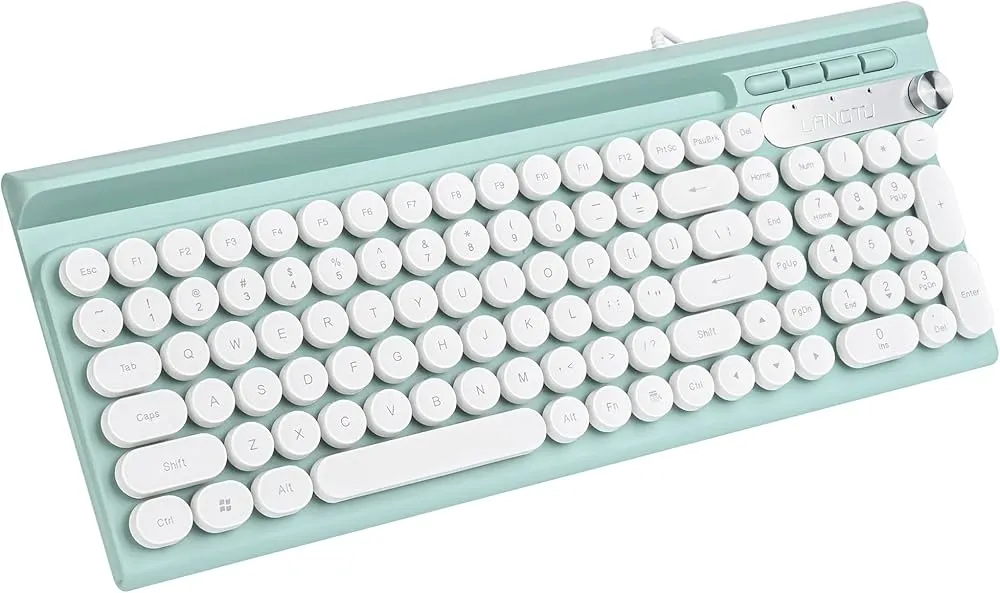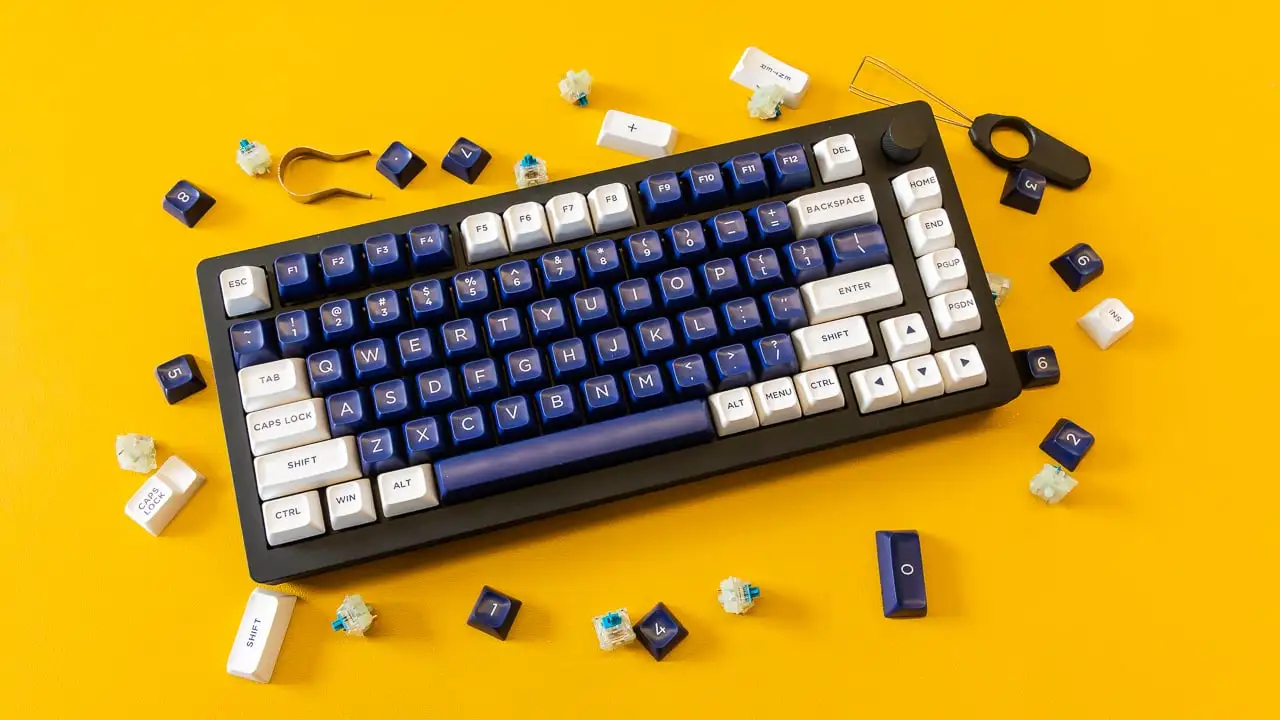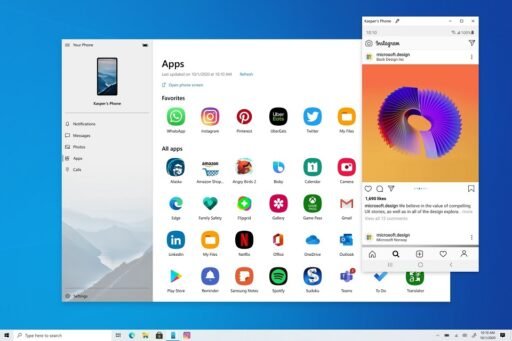Choosing a keyboard may seem like a minor choice to most other pieces needed to put together your perfect computer setup, but it isn’t. It is, after all, the one bit of your setup that you use more than any other. There has long been a debate over whether a mechanical Keyboard or membrane keyboard is the best. In polar opposite terms, both approaches have ardent followers.
Each carries a different feel and thus suits different needs and tastes. Master the differences, advantages, and possible disadvantages of both in this guide, so that you can easily choose the kind of keyboard that will suit your needs best
The Great Keyboard Face-Off: Mechanical vs. Membrane
When you’re shopping for a new keyboard, the first step in the process is deciding between a membrane keyboard and a mechanical one. Both have their strengths, but there are some definite differences between the two that make getting the right one pretty important.
Mechanical keyboards are those that have a structure somewhat similar to the classic typewriter, and each key is fitted with a different mechanical switch. Their tactile and audible nature provides a response for every key, whether it’s a “click” or a “thunk.” Many users just fancy the distinct feel of every key press, which helps one achieve a sense of a well-registered keystroke.
Switch Types: Variation in Feel
- Clicky switches: These are known for the sharp and loud click; ideal for someone who likes their audible feedback.
- Tactile switches: They will have a bump in the middle of the keypress feel but no noise.
- Linear switches: They are smooth from the top to the bottom of the keypress feel, and there’s no click or bump in the way; therefore, they are often chosen for speed-typing or gaming.
The Quiet Contender: Membrane

Membrane keyboards work on a much simpler mechanism as compared to mechanical keyboards. There is merely one sheet of rubber domes beneath the keys.
When pressed down, the rubber dome collapses to the contact of the circuit below, and a keystroke is recorded. Therefore, the design is quieter and softer, with no distinct feeling like in the use of a mechanical keyboard.
This makes membrane keyboards common in most budget models and laptops, so it is one of the most common keyboard choices for people who like a quieter typing experience.
Gaming: Mech or Membrane?
For players, the line of choice between a mechanical and a membrane keyboard usually comes down to performance.
Mechanical keyboards are preferred among gamers because of the level of responsiveness and durability that they can offer. The tactile feedback enables one to feel the exact time a key is activated, which reduces the possibility of missed commands in high-simulation gaming. Besides, the ability to press several keys at once can offer distinct advantages to mechanical keyboards in complex gaming situations.
Although not very popular, one does find membrane keyboards in the world of hardcore gaming. Membrane keyboards are quiet, which means they are well-suited for gaming in a shared space where noise is a concern.
Another important consideration is price: mechanical keyboards are generally more expensive, making them more attractive to casual gamers and those on a budget.
How Noisy Are Mechanical Keyboards?

This is one of the most noticeable differences between mechanical and membrane keyboards: noise. Mechanical keyboards, with their clicky switches, are notorious for the loud typing sound.
Working in an office or sharing a room, the noise would become a problem. At the same time, however, the sound of a mechanical keyboard is quite satisfying for many users, thus adding to the overall typing experience.
Membrane keyboards are the quieter choice. This is due to the rubber dome design that suppresses noise, right for those who like to keep it down. In case you are someone who is looking for a low profile, a membrane keyboard might fit you better.
Customization: Express Yourself
Mechanical keyboards offer the best canvas to expressively personalize your gear. They can be hyper-personalized with different keycaps, switches, and more. Enthusiasts even go so far as to make their own keyboards from scratch. That kind of personalization just isn’t possible with a membrane keyboard, generally by nature of being so much more standardized in their design.
Membrane keyboards, on the other hand, are usually sold as a complete set. Although some may provide very minor modification options, they cannot be customized as fully as mechanical keyboards.
Durability: Longevity vs. Endurance
Another field in which mechanicals outstrip membranes is durability. Because of the individual switches designed to last millions of keystrokes, mechanical keyboards are of outstandingly durable quality. So, the crucial investment of heavy users, who will spend hours typing or gaming each day, is for the sake of durability.
Membrane keyboards are less robust than mechanical keyboards. The rubber domes tend to wear out over time, and the typing experience becomes mushy or unresponsive. While there is nothing wrong with a mechanical keyboard for smaller uses, they usually do not fare very well over more significant use daily.
Comfort and accuracy are key considerations for typists. And frequent typists often prefer mechanical keyboards for their comfort. The feedback helps reduce errors by providing a clear confirmation of each keystroke. Besides, the higher actuation force can sometimes feel more gratifying and less exhausting to use for long durations.
That being said, comfort is highly subjective. Some people enjoy the soft, quiet feel of a membrane keyboard. They are usually less exhausting to type on for long periods, especially if you are used to the softer keypresses of a laptop keyboard.
Price: Budget or Splurge?
In terms of price, another very important consideration in choosing between a mechanical and membrane keyboard is that mechanical keyboards are generally pricier.
The price mainly depends on the switches applied, build quality and brand. However, most users believe they are worth the investment because of their durability and unmatched typing experience.
Membrane keyboards, on the other hand, tend to be cheaper. If you’re on a budget or a casual user, a membrane keyboard may be a good choice.
Portability: On-The-Go
Membrane keyboards win if portability is an issue. Their thinner, lighter design makes them much more portable. This is what makes them a favorite among people who are always traveling or who want to use their keyboards with different devices.
Mechanical keyboards are stronger and more durable but are also large and heavy. They’re preferable for a fixed setup, where weight and size are less relevant.
Other Things to Consider
Switch Type: If in the end, if you choose a mechanical keyboard, consider the switch type carefully. This, of course, is up to you—clicky, tactile, or linear switches—whatever is more comfortable for typing.
Maintenance: These require more maintenance compared to membrane keyboards. Dust and dirt may start collecting between the keys, demanding frequent cleaning. In general, membrane keyboards are easier to maintain since their design prevents debris from getting inside.
Liquid Spills: Membrane keyboards are more resistant to liquid spills because their rubber dome layer repels liquid, while the liquid may damage mechanical switches easily.
Wrapping It All: Which Keyboard is Right for You?
The best choice depends on your needs and how you intend to use the keyboard. If you are a gaming person or at least committed to typing, you are probably better off with a mechanical keyboard.
It will be very responsive, tough, and fitted with customizations mostly for heavy use. If silence or affordability are priorities, a membrane keyboard is a good option. It is quieter, cheaper, and easier to carry around.
If you are one of those people who live to fully customize their technology, mechanical keyboards are full of wonders when it comes to customizability.
To sum up, if portability is paramount, then the lighter and thinner membrane keyboard will be more suitable.
The best way to decide, though, is by trying them both if at all possible. Go to a computer store and test drive both types of keyboards. Your fingers will thank you.



